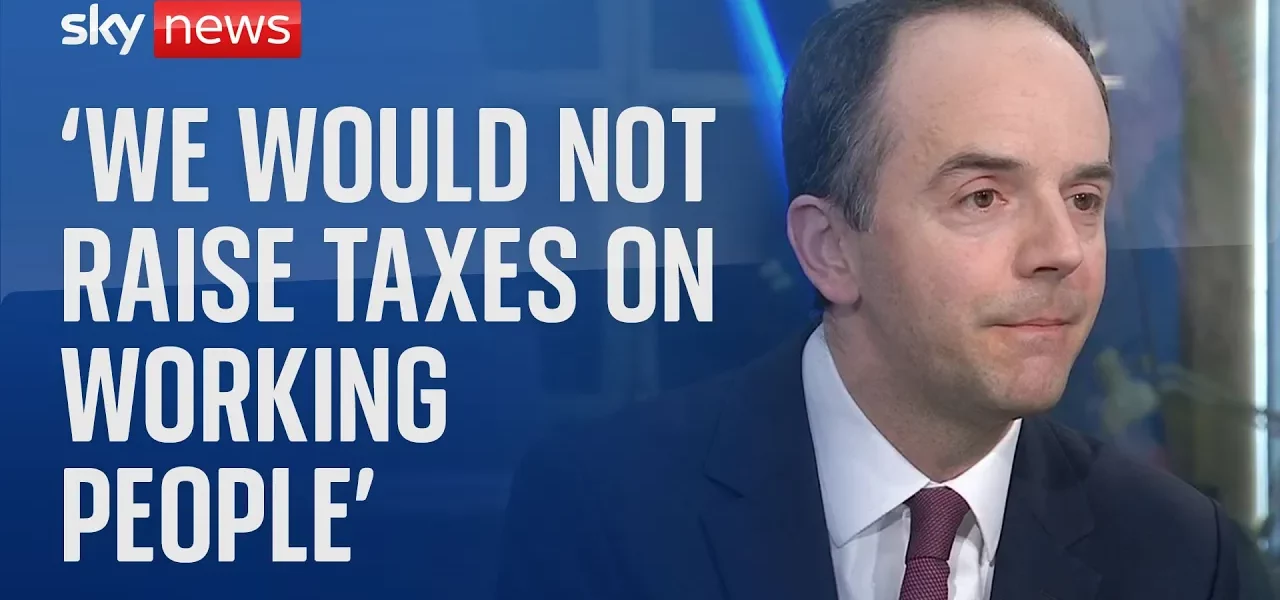James Murray Discusses UK Economy and Investment Strategies

In this comprehensive article, we delve into the insights shared by James Murray, the Secretary to the Treasury, regarding the current state of the UK economy, investment opportunities, and the government’s plans for stabilizing and growing the financial landscape.
Introduction to James Murray’s Role
James Murray serves as the Secretary to the Treasury, a role that involves overseeing tax policies and the HM Revenue and Customs (HMRC). His primary responsibility is to ensure that the UK government collects the necessary funds to support public spending while also fostering a stable economic environment for both local and foreign investors. Murray’s recent comments highlight the government’s commitment to creating a conducive atmosphere for investment, especially after a period of economic instability.
Creating a Stable Investment Environment
The recent investment summit showcased a significant shift in the UK’s economic strategy. Murray emphasized that the previous government’s instability deterred potential investors. The new government’s focus on stability and partnership is key to revitalizing the economy. Below are the main points reflecting this commitment:
- £60 billion in announced investments.
- Creation of approximately 40,000 jobs.
- Encouragement of collaboration between the government and businesses.
Addressing Economic Challenges
Inherited Economic Issues
James Murray candidly discussed the challenges inherited from the previous administration, which included a struggling economy and rising inflation. He stressed the importance of acknowledging these issues to effectively address them through new policies. The government’s focus is now on:
- Restoring economic stability.
- Encouraging investment in key sectors.
- Implementing necessary reforms to stimulate growth.
The Importance of Collaboration
Murray noted that collaboration with businesses is crucial for economic recovery. By reducing unnecessary regulations, the government aims to create a more attractive environment for investment. This partnership approach is evidenced by:
- Engagement with international investors.
- Streamlining regulatory processes.
- Promoting sectors such as life sciences, which can benefit from increased investment.
Future Economic Outlook
Investment Strategies
The investment summit revealed the government’s proactive stance on attracting foreign investment. Murray highlighted that the current government is committed to exceeding the previous administration’s investment achievements, setting the stage for a more prosperous economic future. Key strategies include:
- Fostering a stable economic environment.
- Encouraging private sector investment through tax incentives.
- Implementing infrastructure projects to enhance growth.
Addressing Employment and Unemployment Rates
Murray addressed the current unemployment figures, which stand at 4%. While this is slightly elevated compared to pre-pandemic levels, the government’s focus is on reducing economic inactivity. He highlighted the need to support individuals who are unable to work due to long-term health issues and emphasized the importance of:
- Developing tailored support programs.
- Encouraging healthy lifestyles to combat obesity.
- Providing opportunities for skill development to aid re-entry into the workforce.
The Housing Crisis and Policy Responses
Murray also touched upon the pressing housing crisis in the UK. The government has pledged to build 1.5 million homes during this parliamentary term. To address this issue, the government is taking several strategic steps:
- Investing in the remediation of brownfield sites.
- Reforming planning systems to expedite housing developments.
- Implementing mandatory housing targets to ensure adequate supply.
Conclusion and Call to Action
In conclusion, James Murray’s insights shed light on the UK government’s commitment to economic stability, investment, and addressing key challenges such as unemployment and housing. As the government works towards these goals, it invites businesses and communities to engage actively in the dialogue to foster a collaborative approach to economic growth. For those interested in learning more about the ongoing economic strategies and how they can contribute, we encourage you to explore related articles on our website.
“`




